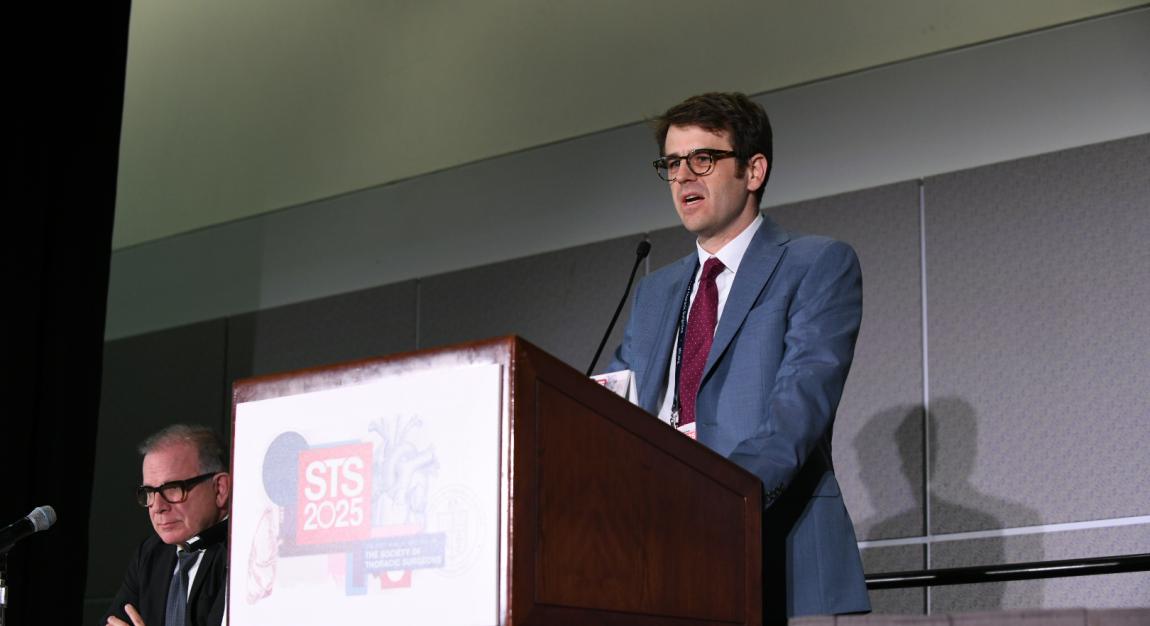In presenting the Adult Cardiac Clark Paper on day two of STS 2025, Increased Risk of Surgical Aortic Valve Replacement After Prior Transcatheter Versus Surgical Aortic Valve Replacement with Concomitant Valve Disease, Dr. Robert Hawkins explores the heightened mortality risk for patients undergoing reoperation after transcatheter aortic valve replacement (TAVR) compared to those who have undergone surgical aortic valve replacement (SAVR).
Using data from the STS Adult Cardiac Surgery Database, which covers the years 2011 to 2021, Dr. Hawkins and his team examine the impact of concomitant mitral and tricuspid valve diseases on reoperation outcomes, with a particular focus on TAVR explants.
As part of the “Aortic Valve Surgery: What Do Our Patients Need to Know?” session on Saturday, Jan. 25 from 4:30 – 5:45 p.m., Dr. Hawkins will discuss findings that show patients with prior TAVR are more likely to suffer from severe concomitant valve diseases, such as mitral regurgitation, compared to those who underwent SAVR. These patients demonstrated a higher mortality rate during reoperation, particularly TAVR explants with an increase in the odds of mortality. The study further finds that severe valve disease is associated with significantly higher mortality in both TAVR explant and redo-SAVR cases.
During this session, Dr. Hawkins will share findings indicating that heart teams should consider these risks when deciding between TAVR and SAVR, as well as when addressing dysfunctional TAVR valves to avoid the heightened risks of reoperation.
